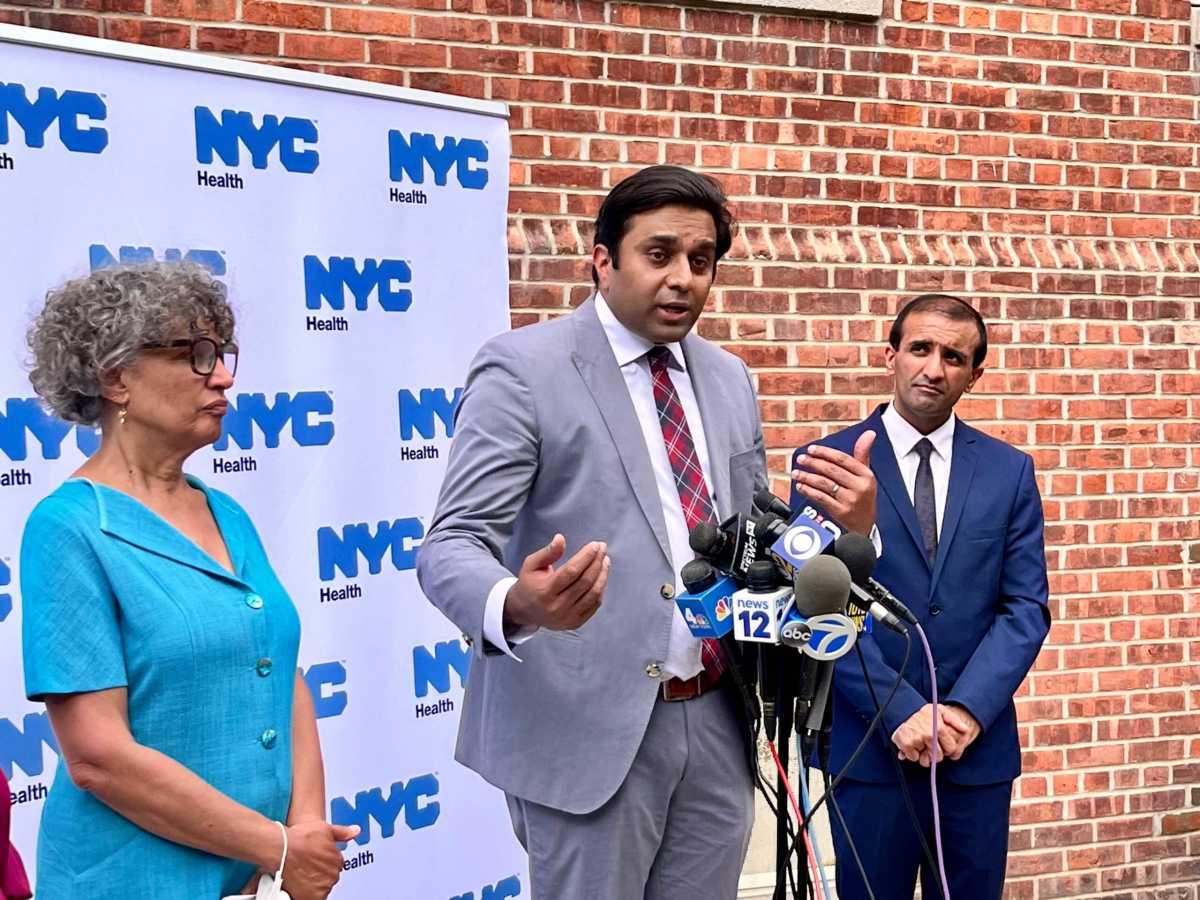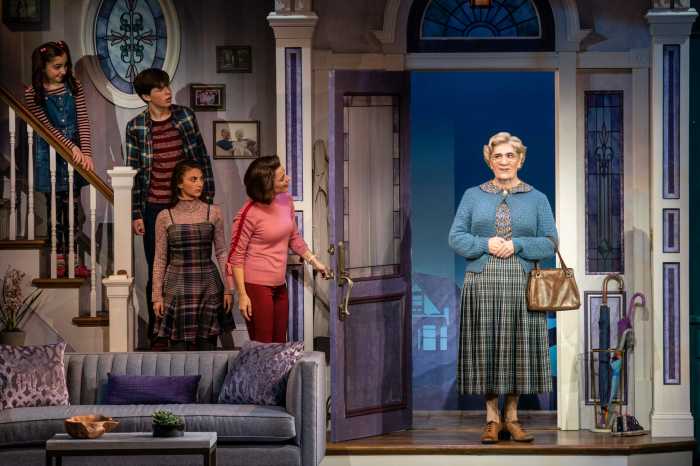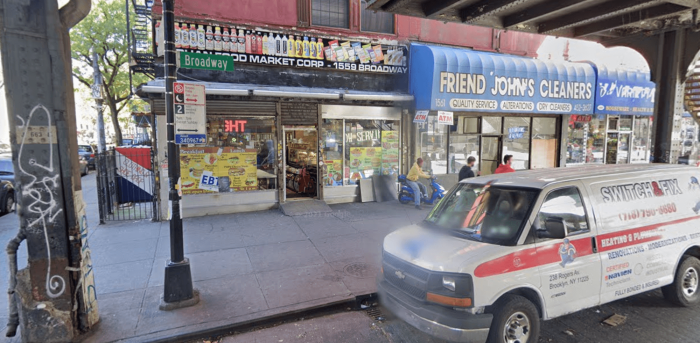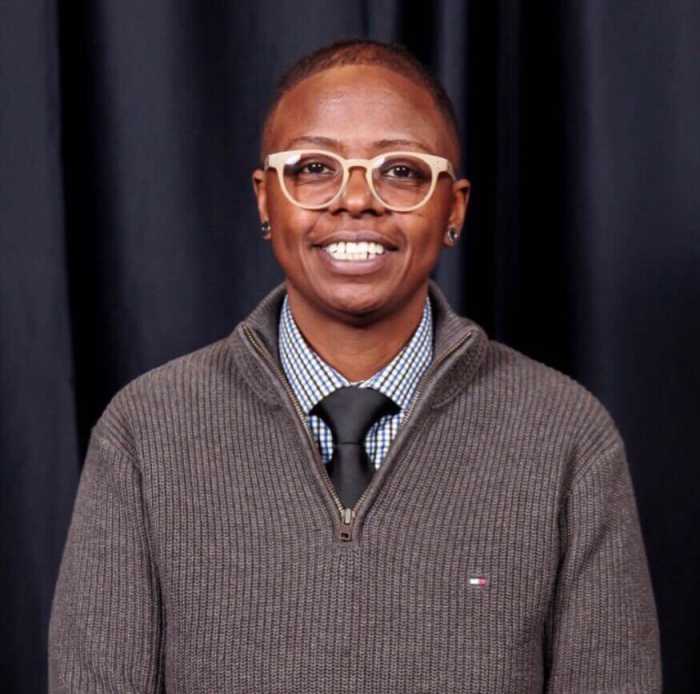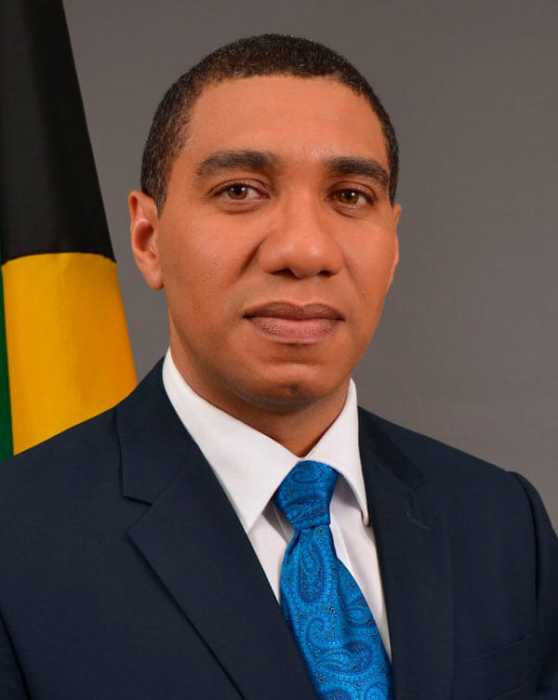Biden administration officials gathered with the state and city health commissioners outside of a health clinic in Harlem on July 7 to discuss the vaccine rollout effort — including plans to release more than four million doses over the next year.
The press conference represented the latest development in the effort to combat monkeypox, which has primarily impacted communities of men who have sex with men. New York City has tallied 141 monkeypox cases as of July 7, which is up from 119 on July 6. New York City Health Commissioner Ashwin Vasan said 75 percent of monkeypox cases in New York City are coming from Manhattan, with one-third of all cases in the city emerging out of Chelsea and Hell’s Kitchen.
The outbreak has coincided with limited supply of monkeypox vaccine doses and frustrations over issues with scheduling appointments. In New York City, all available appointments were reserved quickly on July 6 and the sign-up website experienced technical difficulties.
Those who qualify for vaccines include gay and bisexual men, other men who have sex with men, and non-binary, transgender, and gender non-conforming people who are 18 or older and have had multiple or anonymous sex partners in the past 14 days. Those who have been exposed to monkeypox can also qualify for a vaccine. Eligible candidates also include those who have had skin-to-skin contact with someone within a social network impacted by monkeypox, such as men who have sex with men they meet through online websites and apps or at parties.
Raj Panjabi, the coordinator of the White House Pandemic Office, announced that the government would be gradually distributing 4.1 million doses of the JYNNEOS vaccine over the course of the next 12 months in addition to the 56,000 doses already allocated. Among those doses, more than 140,000 will be sent out in the coming weeks and 1.5 million will be rolled out over the course of the summer and the fall.
To this point, 8,195 doses have been allocated across New York State, including around 6,000 in New York City. The remaining 2,206 doses are being spread out across Suffolk, Westchester, Nassau, Saratoga, Rockland, and Sullivan counties. The state is using 226 doses for close contacts of known cases and healthcare workers exposed to monkeypox at work.
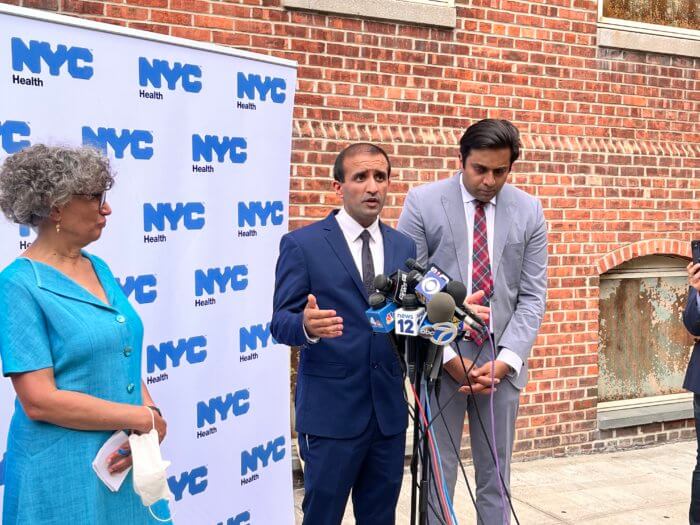
“We’re dealing with a very constrained supply,” Vasan said. “Equity is an incredibly hard thing to preserve in an environment with scarce supply.”
The limited availability of the vaccine, which requires two doses 28 days apart, led to other questions about whether there would be enough supply to provide both first and second shots to individuals. New York State Health Commissioner Mary Bassett noted that second doses would be available as additional shots arrive. The vaccine is considered to be fully effective two weeks after the second dose.
Vasan said a subset of the vaccines are being reserved for community-based organizations and providers of high-risk populations, including those serving people living with HIV/AIDS. Some gay bathhouses in other cities, such as Chicago’s Steamworks, have been hosting vaccine appointments when slots are available.
The Central Harlem Sexual Health Clinic — at 2238 Fifth Avenue in Manhattan — is one of the two monkeypox clinics that opened in New York City on July 7. The Chelsea Sexual Health Clinic, which is where the first round of vaccines were first administered last month, reopened at West 28th Street and Ninth Avenue in Manhattan. A third clinic is slated to open later this month in Corona, Queens.
The government is also working to ramp up testing capacity. The Centers for Disease Control and Prevention (CDC) announced expanded testing through LabCorp, which will use the CDC’s orthopoxvirus test (which is used to test for smallpox-related orthopoxviruses such as monkeypox) to test up to 10,000 people per week, according to the CDC. LabCorp started testing for monkeypox on July 7.
Health officials on hand at the press conference often noted that the monkeypox outbreak is not on the same scale as the coronavirus pandemic. To that end, Vasan said monkeypox warrants a targeted approach within the impacted communities rather than a broad appeal to the general public.
The state, meanwhile, has launched a public education campaign with paid digital advertisements targeting men who have sex with men. A web page on the state health website offers additional resources and FAQs to educate folks with questions about monkeypox. Informational resources, according to the state, have been delivered to LGBTQ organizations, county health departments, healthcare providers, and businesses. There will be posters placed in healthcare centers, mass transit hubs, parks, rest stops, restaurants, bars, and nightclubs.
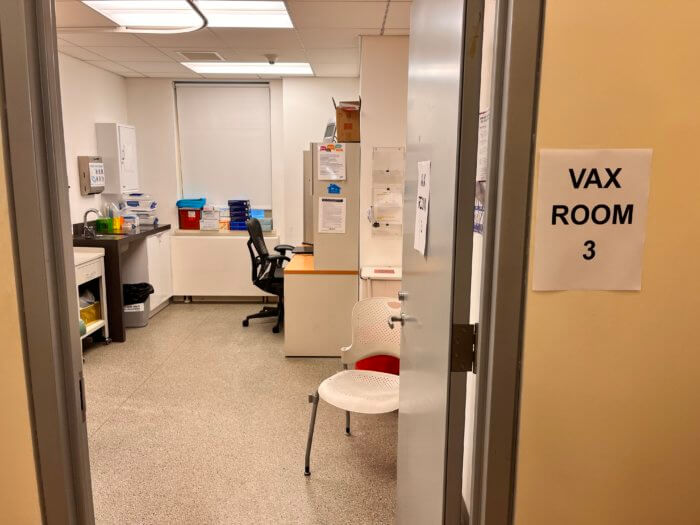
While it is clear that monkeypox is impacting men who have sex with men, the city is refraining from divulging additional data on the demographics of those who have been infected.
“Releasing data on the demographics for a vulnerable population like LGBTQ men, MSM, is not something we do lightly,” Vasan said in response to a question from Gay City News. “I know there are a lot of talks about the demographics of people, but let’s think about who we are releasing demographics on and respecting people’s privacy as well.”
Hours after the press conference, four organizations — Equality New York, the New Pride Agenda, the LGBT Community Center, and Housing Works — issued a statement calling on the city and state to step up the response to monkeypox and ensure that the impacted communities are included in that effort. The groups called for additional vaccines; updates on where cases are rising and vaccines are being distributed; improvements to language accessibility and trans-inclusive language; and an equity-driven approach to opening sexual health clinics in different boroughs of the city.
According to the CDC, monkeypox symptoms can include fever, headache, muscle aches and backaches, swollen lymph nodes, chills, exhaustion, and rashes resembling pimples or blisters. Those rashes can show on the hands, feet, chest, genitals, or anus, and can take two to four weeks to heal.
Monkeypox can spread by engaging in direct contact with the infectious rash, scabs, or body fluids, as well as through respiratory secretions “during prolonged, face-to-face contact” or during intimate contact such as kissing, cuddling, or having sex. It is also possible to spread monkeypox by touching linen or clothing that came in contact with infectious rash or body fluids. Pregnant individuals can spread monkeypox to their fetus via the placentia, according to the CDC.
Monkeypox is able to spread from the time symptoms arise until all rashes are healed and a new layer of skin forms. It is unclear whether monkeypox can spread via vaginal fluid or semen, the CDC’s website states.
Health officials are encouraging individuals to ask sexual partners if they have a rash or other monkeypox-related symptoms and to avoid skin-to-skin contact with anyone with a rash or monkeypox-related symptoms.
“We are putting out a message that says sex is positive,” Vasan said. “We are not putting out a message that says don’t have sex. We are putting out a message that says take care, be safe, and prevent the spread.”

